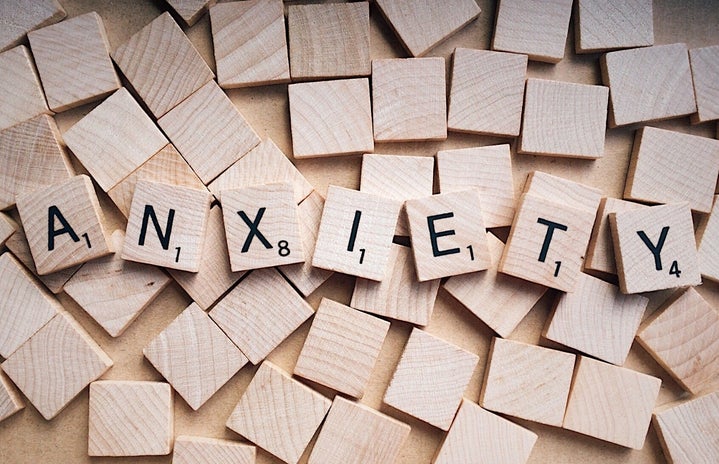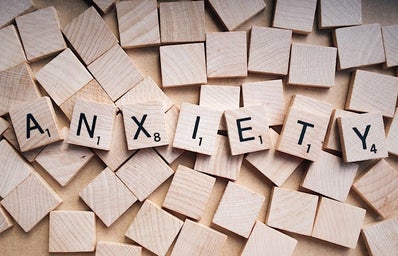Trigger warning: This story references anxiety, including a vivid account of an anxiety/panic attack.
Someone has stuck their hand through my chest, gripping my heart in an iron fist. Lungs constricting, I choke on air that I cannot swallow. My fingers twitch as their vessels work desperately to pump blood to my extremities. My vision blurs, and tears overflow the dam of my eyelids, flooding my chin and tumbling down my cheeks.
Meanwhile, my head is like T. Anne Cleary Walkway if thoughts were students. They jumble and collide, and some kid is sprinting and shoving others out his way. That extremist religious guy is screaming in the background. His curses echo between my ears, and I realize that he has my voice.

I unlock my phone and open my Clear Fear app, fingers shaking as I slip my noise-canceling headphones into my ears. “Breathe in and hold it. Breathe out, slowly, and let your muscles relax,” says the woman in the video, her voice soft and soothing. She takes me through a five-minute guided breathing exercise, the tightness in my chest loosening with each breath.
My counselor recommended this phone app. Sometimes, she said, all we need is a reminder to breathe. I never thought an app like Clear Fear could help me, but I’ve already noticed improvements in how my body reacts during a panic attack when I turn on my guided breathing exercise. My heart rate slows, my muscles relax, and my thoughts begin to slow as I focus just on the air filling my lungs.
I’ve struggled with anxiety for most of my life. For years, I’ve had fear whispering in my ear like a broken white noise machine that makes me more uncomfortable the longer I listen. Anxiety is like duct-taping a 10-pound weight to your chest. Eventually, you get used to the feeling of the cold steel on your skin and the constant pressure against your ribcage. But some days, that weight feels like it weighs 100 pounds; like it’s pulling you from the ground you stand on and preventing you from completing the most basic tasks. Suddenly, just getting out of bed feels impossible.

I hit a breaking point in January of this year. I felt like my life was crumbling around me. My family was struggling with their health. School seemed pointless. My panic attacks became a daily occurrence. Even though I had friends to support me, a loving partner, and family who had my back, I felt more alone than ever. And I didn’t know why.
My best friend encouraged me to check out the University’s counseling services, just to see if I was interested. I don’t know why I had never been to counseling prior to this year. Now, it seems so obvious that I needed to talk to someone who could listen and understand – on a psychological level – what I was going through. And I needed some professional help because, no matter what I tried, I wasn’t getting better.
Going to counseling was the best decision I have ever made for my mental health. I’ve learned how to name my feelings. When everything gets jumbled up in your head, untangling the mess of emotions is impossible to do alone. But having someone ask you questions – the right questions – can start to unravel the mess and pinpoint the root of those feelings. Understanding how you feel is the first step in processing your emotions. Instead of running from my fear, I’ve learned to sit with it, recognizing why I am afraid and using reason to diminish that fear. I can’t control what I think, but I can control how I process those thoughts.
I’ve also learned to stand up for myself. I shouldn’t have to hide how I feel. I have found strength in my anxiety. I have had to fight the restraints of mental health, and I have been resilient. There is bravery in pain; there is courage in talking about how you feel. I refuse to let stigma silence me. Of course, that’s easier said than done, and some parts of my mental health will never appear in one of these articles.
Counseling isn’t an end-all, cure-all. It’s a start. It’s a step in the direction of managing your mental health. Counseling doesn’t work for everybody, but you never know until you try. I used to think that going to counseling meant admitting that something was wrong with you. Going to counseling is proactive. It’s not damage control, it’s an education. And everyone can benefit from learning more about themselves and how they can better identify and process their emotions.



